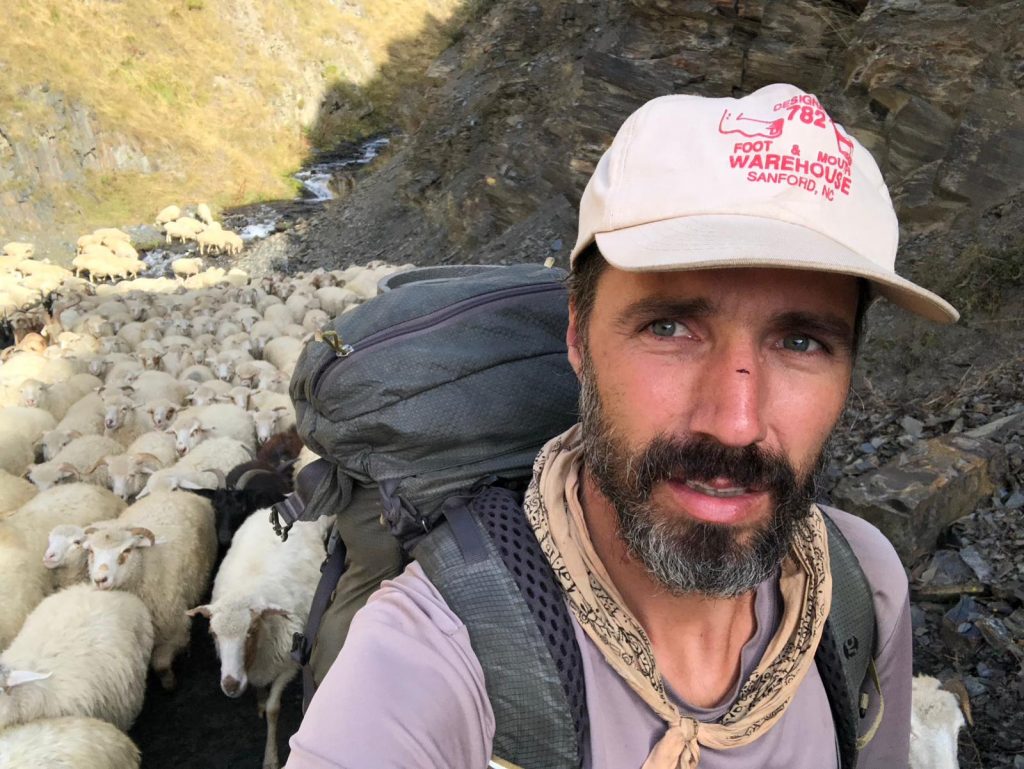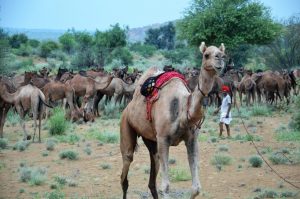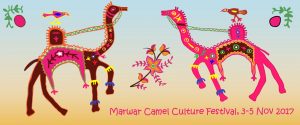Traditional dryland experts project their knowledge abroad
|
Tola Ram Bhil performs in Europe The hills were alive with a different kind of music – the Raika in Switzerland
Meeting a Swiss shepherdess on the mountain trail The Raika with Spanish sheep herds in a rally through the streets of Madrid |
Nomadic pastoralists use drylands in a sustainable and “natural” manner. That is well supported by ecological studies. Keeping animals on the move means they can use seasonal resources and protects vegetation from overgrazing. In drought-prone Rajasthan, mobile livestock keeping is a traditional way to use the land – though government policies are not kind to this way of life. Recently a group of Raika – a prominent pastoralist group in Rajasthan – had the chance to project their traditional knowledge in managing livestock in dry areas to an international audience in three European countries. Composed of Rama Ram, Dailibai, and Mangi Lal Raika, all from Pali District, the delegation was headed by Hanwant Singh, director of Lokhit Pashu-Palak Sansthan. The Raikas were accompanied by Tola Ram Bhil, a musician and bard from Jodhpur. The mission created quite a buzz wherever they went. The purpose of the tour was to raise awareness about the pressures on the pastoralist way of life and the crucial role of pastoralists in managing livestock biodiversity. The tour was arranged by the League for Pastoral Peoples and Endogenous Livestock Development with support from the Christensen Fund. The first stop on the tour was at the headquarters of the League, in the small village of Wembach in Germany. Here the group was surprised to learn that the local shepherd was employed in nature conservation: he used his sheep to maintain the biodiversity of rich patches of land in a government-sponsored programme. The Raika also visited a goat dairy and an organic farm, besides enthralling local media with their trademark red turbans and Tola Ram’s spell-binding music, relating how the first camels were brought to Rajasthan about 700 years ago. The next destination was Switzerland, where the delegation participated in the First International Conference on Animal Genetic Resources and joined other pastoralists in the Animal Diversity Forum, a parallel NGO event that was co-organised by the LIFE Network for community-based management of animal genetic resources and other NGOs. An excursion took them high up into the Alpine meadows where they exchanged experiences with a young woman goat herder who spends the summers in total isolation in the mountain pastures, processing the goat milk into cheese. The final leg of the trip was to Spain to attend a Global Gathering of Pastoralists organised by the Spanish shepherd association. In Spain too, there is recognition of the value of pastoralism for biodiversity conservation, and the century-old system of transhumance between the coastal lowlands and the central plateau has been revived. Traditional passageways for sheep, hundreds of feet wide, are once again being used. The right of shepherds to drive their herds through the centre of Madrid has also been re-established, and is occasion for a big annual festival. This year, the Spanish sheep herds were joined by the over 200 pastoralists in their rally through Madrid. The rally ended on the Plaza Mayor in front of the city administration. Dozens of journalists were waiting to get quotes and sound bites from the pastoralists. The Raika rounded off their eventful trip with a side-event at a meeting of the United Nations Convention to Combat Desertification, where they organised a side-event on “The Role of Pastoralists in Conserving Biodiversity”, showing the Film “Keepers of Genes. India’s Pastoralists and their Breeds”. The Raika were not only excellent ambassadors for their home country, but brought back many lasting impressions. According to Rama Ram, the most useful learning was how highly valued pastoralism is in Europe as a tool for nature conservation and a source of specialty products. |








